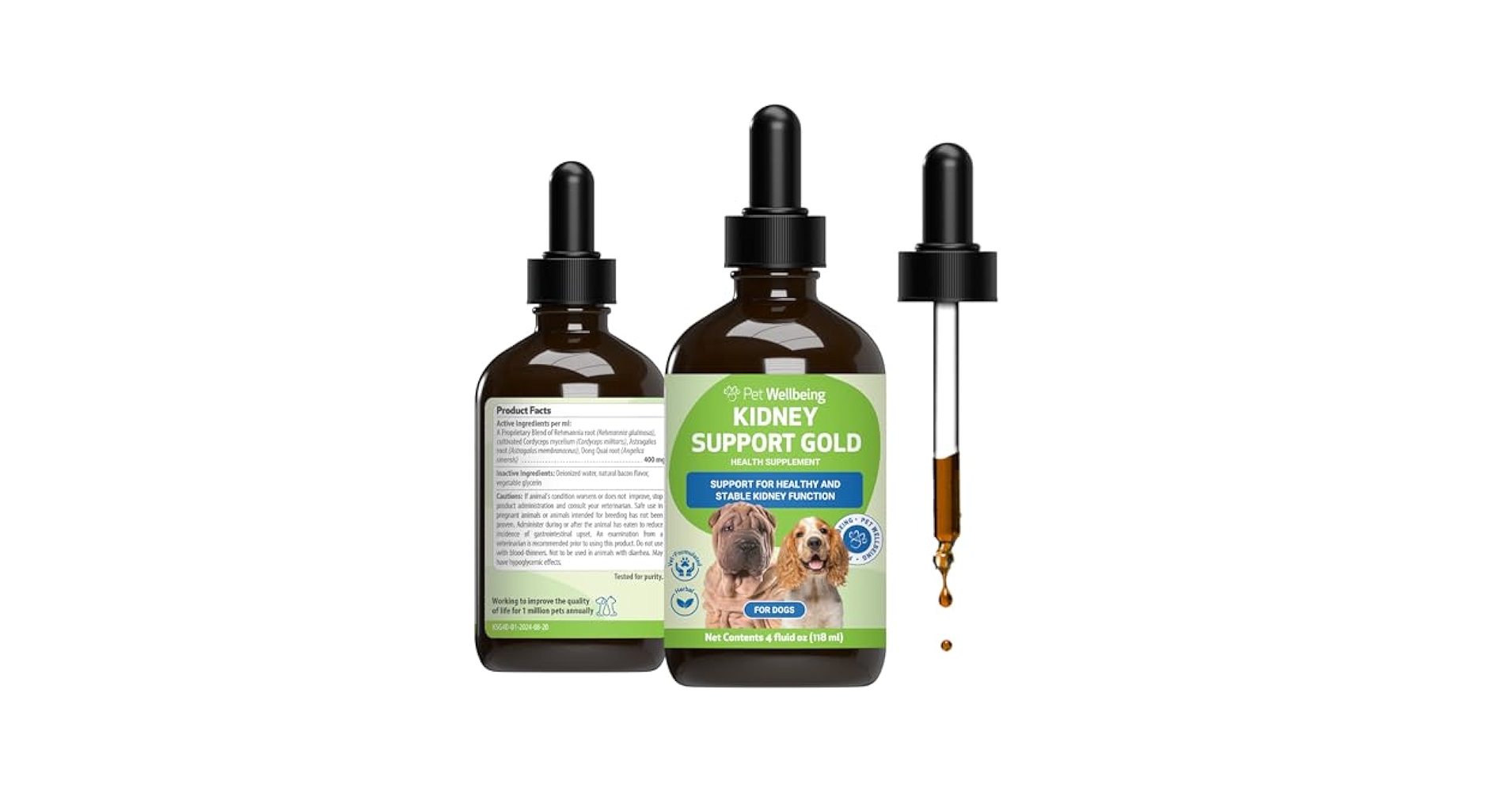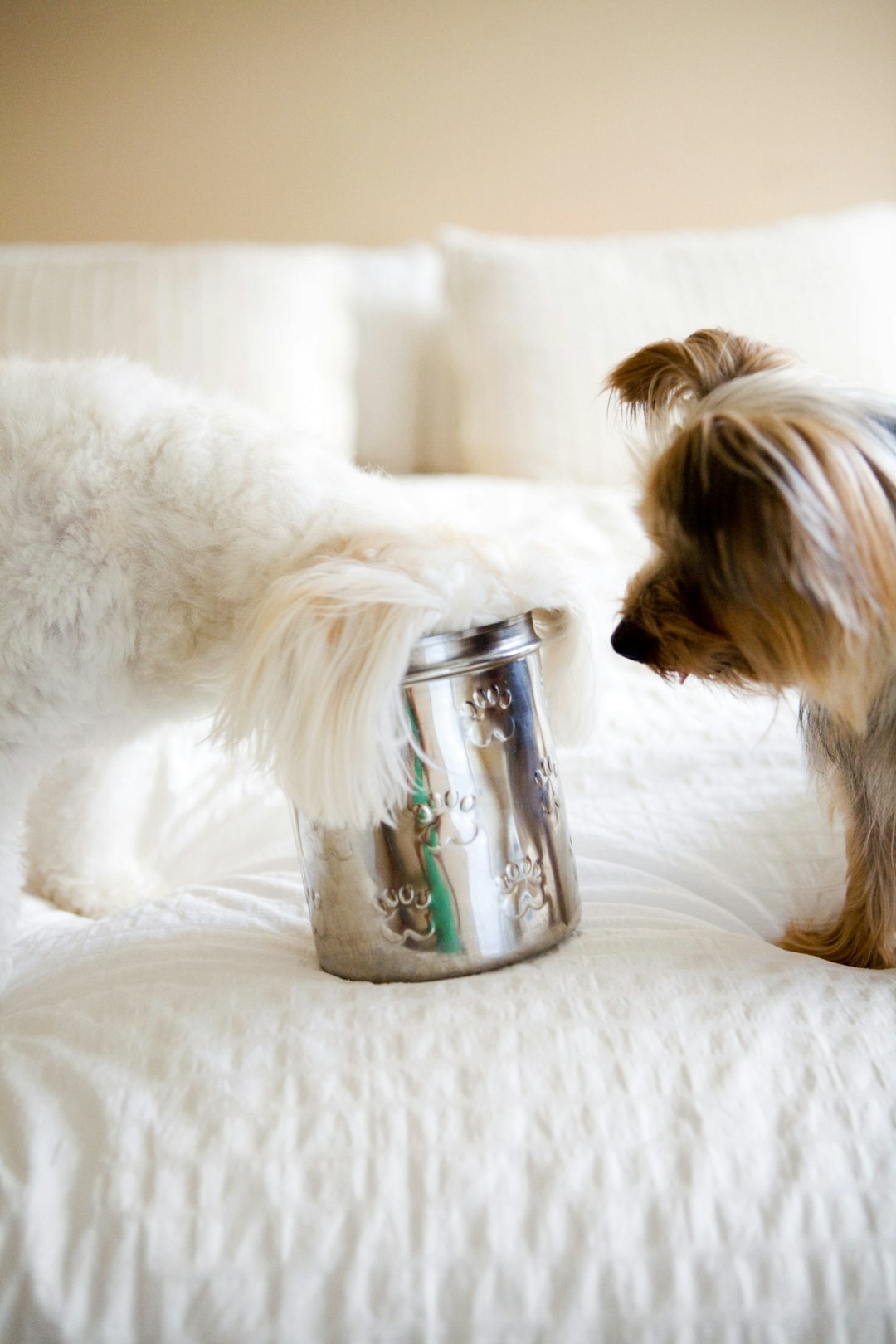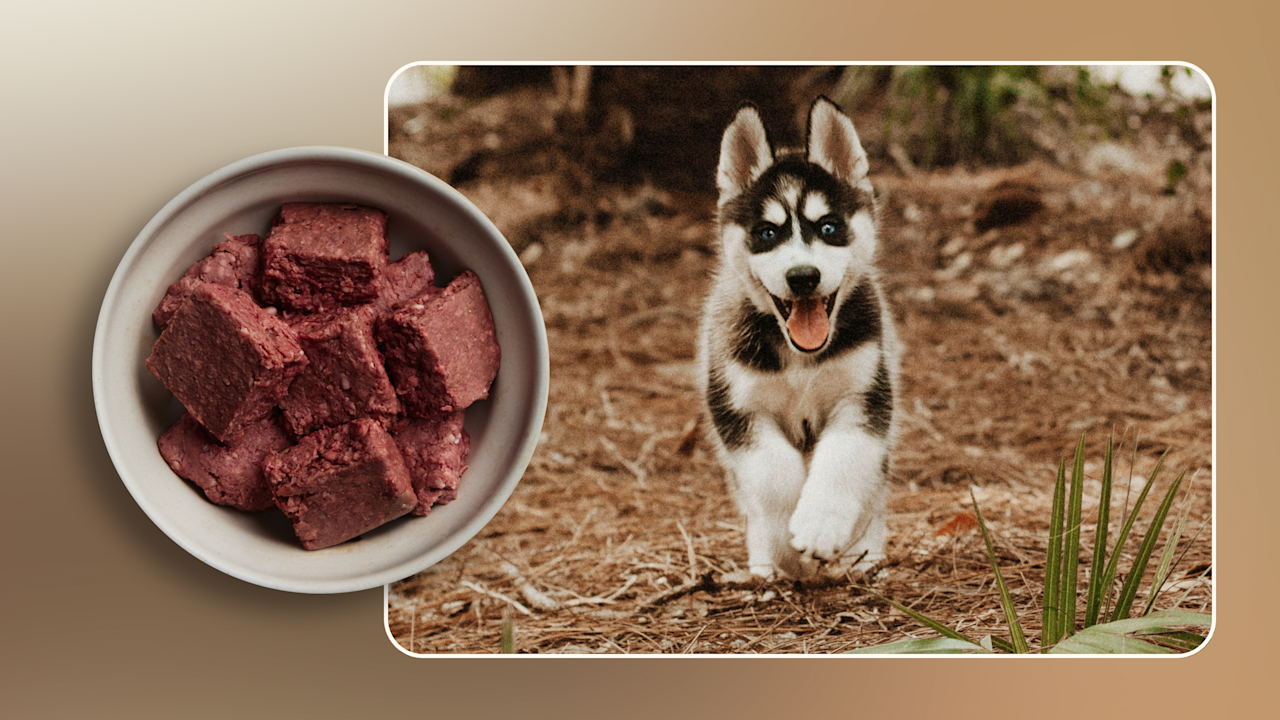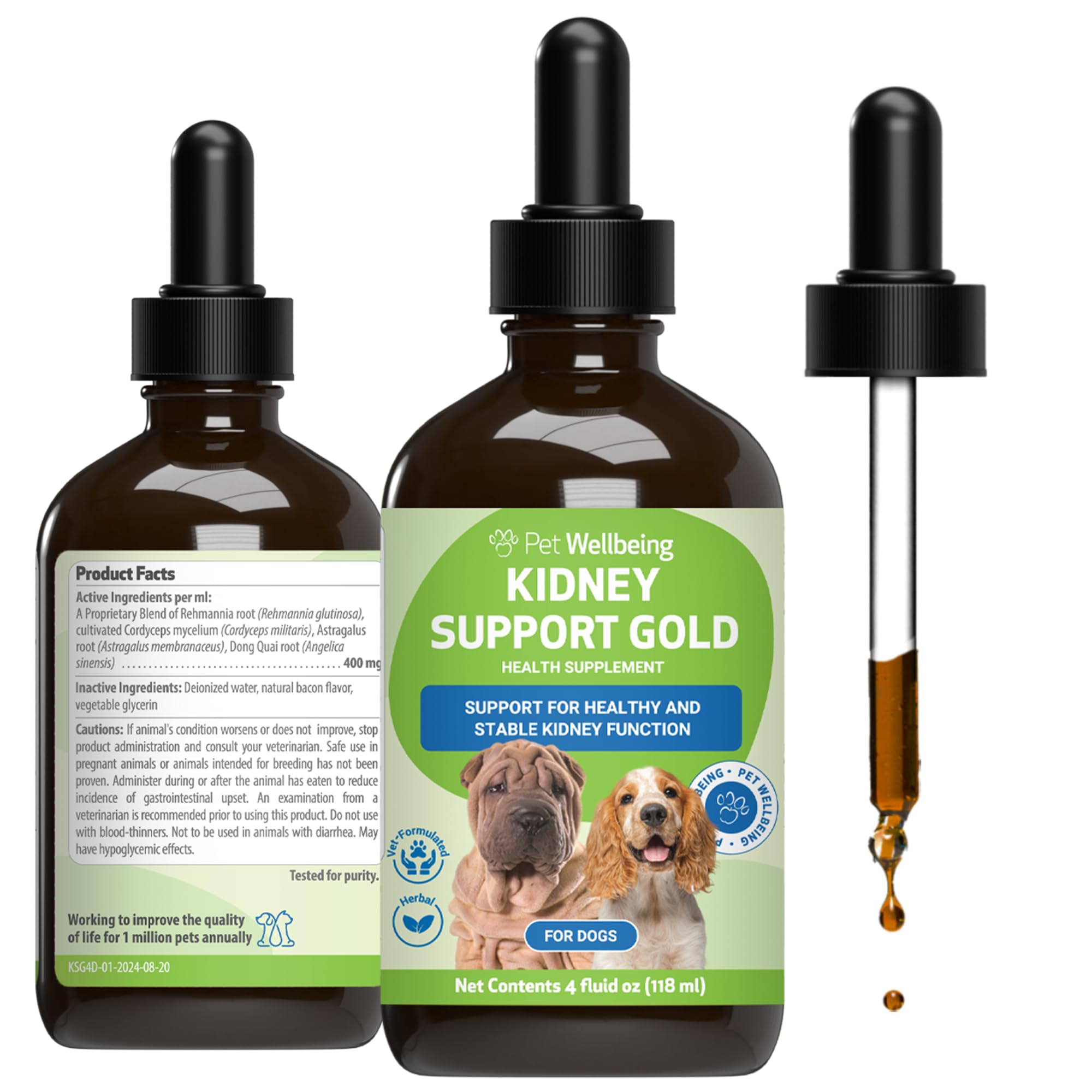If your dog has high BUN levels, you’re probably worried about their health. You want to help your furry friend feel better and live a happier life.
But what can you do? Nutritional supplements might be the key to lowering those BUN levels and supporting your dog’s kidneys. You’ll discover which supplements can make a real difference and how they work. Keep reading—you owe it to your dog to find out how simple changes can improve their health.
Causes Of Elevated Bun In Dogs
Understanding what causes elevated Blood Urea Nitrogen (BUN) in dogs is crucial if you want to manage their health effectively. BUN levels reflect how well your dog’s kidneys are working and can signal underlying issues. Let’s look closely at the main causes that can push BUN levels higher than normal.
Kidney Function And Bun Levels
Your dog’s kidneys filter waste products like urea from the blood. When kidney function declines, waste builds up, leading to increased BUN levels.
Chronic kidney disease is a common cause of elevated BUN in dogs, especially as they age. Have you noticed your dog drinking more water or urinating more often? These signs could point to kidney troubles affecting BUN.
Dehydration And Its Impact
Dehydration reduces the blood volume, making waste products more concentrated. This can cause a temporary spike in BUN even if the kidneys are healthy.
If your dog has been vomiting, has diarrhea, or isn’t drinking enough water, dehydration might be the culprit behind high BUN. Have you checked your dog’s hydration status lately?
Dietary Factors Influencing Bun
What your dog eats directly affects BUN levels. High-protein diets increase urea production, which can raise BUN.
Feeding your dog excessive amounts of protein-rich foods, like meat or certain supplements, might stress their system. Balancing protein intake can help keep BUN levels in check and support overall kidney health.

Credit: www.vetriscience.com
Key Supplements For Lowering Bun
Managing your dog’s blood urea nitrogen (BUN) levels can feel challenging, but certain nutritional supplements may help support kidney function and reduce these levels naturally. Adding the right supplements to your dog’s diet could improve their overall health and potentially ease the strain on their kidneys. Let’s look at some key supplements that have shown promising results in lowering BUN.
Omega-3 Fatty Acids
Omega-3 fatty acids, commonly found in fish oil, have powerful anti-inflammatory properties. They help reduce inflammation in the kidneys, which can improve kidney function and lower BUN levels. Many dog owners notice improved energy and coat health after adding omega-3s to their pet’s diet.
Try giving your dog high-quality fish oil supplements or including fatty fish like salmon in their meals. Always check with your vet for the right dosage to avoid any side effects.
Antioxidants
Antioxidants protect the kidneys from damage caused by free radicals. Vitamins like E and C are great antioxidants that can be added as supplements or found in certain fruits and vegetables safe for dogs. They help slow down kidney deterioration and can support overall health.
Have you noticed your dog becoming more tired or less active? Adding antioxidants might give their kidneys a fighting chance to function better. Just make sure to consult your vet before starting any new supplement.
Probiotics
Probiotics promote healthy gut bacteria, which plays a surprising role in kidney health. A balanced gut can help reduce the build-up of toxins that increase BUN levels. Some dog owners report better digestion and energy levels after using probiotic supplements.
Look for probiotics specifically formulated for dogs and add them to your dog’s meals. It’s a simple step that might make a big difference in managing BUN.
Role Of Protein In Bun Management
Protein plays a crucial role in managing Blood Urea Nitrogen (BUN) levels in dogs. Since BUN reflects how well the kidneys are filtering waste, adjusting protein intake can directly impact these levels. Understanding how protein affects your dog’s body helps you make smarter nutritional choices to support kidney health.
Low-protein Diet Benefits
Reducing protein in your dog’s diet can lower the production of urea, which is a byproduct of protein metabolism. Less urea means the kidneys have less waste to filter, easing their workload. Dogs with kidney issues often feel better and maintain energy when their protein intake is controlled.
However, cutting protein too much can cause muscle loss and weakness. The key is to find a balance that reduces strain on the kidneys without sacrificing your dog’s strength. Have you noticed your dog’s energy levels drop after changing their diet? That might be a sign to adjust protein amounts carefully.
Choosing The Right Protein Sources
Not all proteins affect BUN levels equally. High-quality, easily digestible proteins like chicken, fish, and eggs produce fewer waste products compared to lower-quality options. These sources provide essential amino acids without overwhelming the kidneys.
Plant-based proteins such as peas or lentils can be part of the mix but might lack certain amino acids your dog needs. A mix of animal and plant proteins often works well, but always consult your vet to customize your dog’s diet.
- Opt for lean meats over processed or fatty cuts.
- Consider hydrolyzed protein diets designed for sensitive kidneys.
- Check ingredient labels to avoid unnecessary fillers that can stress kidney function.
Choosing the right protein source can make a big difference in managing your dog’s BUN. What protein choices have you found work best for your dog’s health?

Credit: www.amazon.com
Herbal And Natural Remedies
Herbal and natural remedies offer gentle support for dogs dealing with high blood urea nitrogen (BUN) levels. These supplements can help improve kidney function and reduce toxin buildup without harsh side effects. Many pet owners notice positive changes by adding these natural options to their dog’s care routine.
Milk Thistle
Milk thistle is well-known for its liver-protective properties, which indirectly benefit kidney health. It contains silymarin, an antioxidant that helps repair damaged liver cells and supports detoxification. Have you tried adding milk thistle to your dog’s supplements to help ease the strain on their organs?
Many dog owners report improved energy and reduced fatigue after consistent use. Always consult your vet before starting milk thistle, especially if your dog takes other medications.
Dandelion Extract
Dandelion extract acts as a natural diuretic, helping your dog flush out excess toxins and reduce fluid retention. This can ease the burden on kidneys struggling to filter waste efficiently. You might be surprised how a simple plant can support your pet’s overall kidney function.
Besides detox, dandelion also provides vitamins A, C, and K, which boost immune health. Adding dandelion extract to your dog’s diet can be a safe and effective way to help lower BUN levels.
Turmeric
Turmeric’s active compound, curcumin, has anti-inflammatory and antioxidant effects that benefit dogs with kidney issues. It helps reduce inflammation in the kidneys, which can improve their filtering ability over time. Have you noticed how a pinch of turmeric can make a difference in your dog’s vitality?
To maximize absorption, combine turmeric with a small amount of black pepper. Start with small doses and monitor your dog for any reactions, adjusting as needed under veterinary guidance.
Hydration And Its Importance
Keeping your dog well-hydrated plays a crucial role in managing and reducing blood urea nitrogen (BUN) levels. Proper hydration helps the kidneys flush out toxins efficiently, reducing the strain on these vital organs. If your dog isn’t drinking enough water, waste products can build up, making kidney issues worse.
Have you noticed your dog drinking less water lately? It might be time to make hydration a priority to support their kidney health and overall well-being.
Water Intake Tips
Encouraging your dog to drink more water can be simple with a few changes:
- Fresh water:Change the water bowl frequently to keep it fresh and appealing.
- Multiple bowls:Place water bowls in different spots around your home to make drinking easier.
- Flavor boost:Add a splash of low-sodium chicken broth or a few ice cubes to entice your dog.
- Wet food:Adding wet food to their diet increases fluid intake naturally.
Small adjustments can make a big difference in how much your dog drinks daily.
Electrolyte Supplements
Electrolytes like potassium, sodium, and magnesium help maintain fluid balance in your dog’s body. When BUN levels are high, electrolyte imbalances can occur, making supplements useful.
Special electrolyte supplements designed for dogs can restore these minerals safely. Before adding any supplement, check with your vet to ensure it fits your dog’s specific needs.
Have you considered how electrolyte balance could improve your dog’s hydration and kidney function? Sometimes, a targeted supplement can support recovery better than water alone.
Consulting Your Veterinarian
Consulting your veterinarian is essential when managing your dog’s BUN levels. They offer expert advice tailored to your pet’s health. This ensures safe and effective use of nutritional supplements. Your vet can help identify the right supplements and proper care routines. Avoid using any supplements without professional guidance. It may lead to harmful effects or worsen your dog’s condition.
Monitoring Bun Levels
Regular blood tests are necessary to check BUN levels. Your veterinarian will schedule these tests based on your dog’s health needs. Tracking changes helps to see if supplements work well. It also guides adjustments in treatment or diet. Keep a record of test results to discuss at vet visits. This helps maintain clear communication and better care for your dog.
Supplement Dosage And Safety
Proper dosage depends on your dog’s weight, age, and health status. Your veterinarian calculates the right amount for effectiveness and safety. Avoid giving human supplements or incorrect doses. Some supplements can interact with medications your dog takes. Watch for side effects like vomiting, diarrhea, or changes in behavior. Report any issues to your vet immediately to prevent complications.

Credit: www.vetriscience.com
Frequently Asked Questions
What Supplements Help Reduce Bun Levels In Dogs?
Supplements like omega-3 fatty acids, probiotics, and antioxidants can help lower BUN levels. They support kidney function and reduce inflammation, promoting overall health in dogs.
Can Omega-3 Fatty Acids Lower Bun In Dogs?
Yes, omega-3 fatty acids reduce inflammation and improve kidney health. They help decrease BUN by supporting proper kidney function in dogs.
How Do Probiotics Affect Bun Levels In Dogs?
Probiotics balance gut bacteria, reducing toxin buildup that strains kidneys. This helps lower BUN levels and supports better kidney health in dogs.
Are Antioxidants Beneficial For Dogs With High Bun?
Antioxidants protect kidney cells from damage caused by free radicals. They help improve kidney function, which can reduce elevated BUN levels in dogs.
Conclusion
Nutritional supplements can help lower BUN levels in dogs effectively. Ingredients like omega-3 fatty acids and probiotics support kidney health. Always choose supplements made for dogs and check with your vet first. Proper nutrition and care improve your dog’s overall well-being.
Small changes can lead to big health benefits over time. Keep watching your dog’s condition and adjust supplements as needed. Healthy dogs make happy companions.







